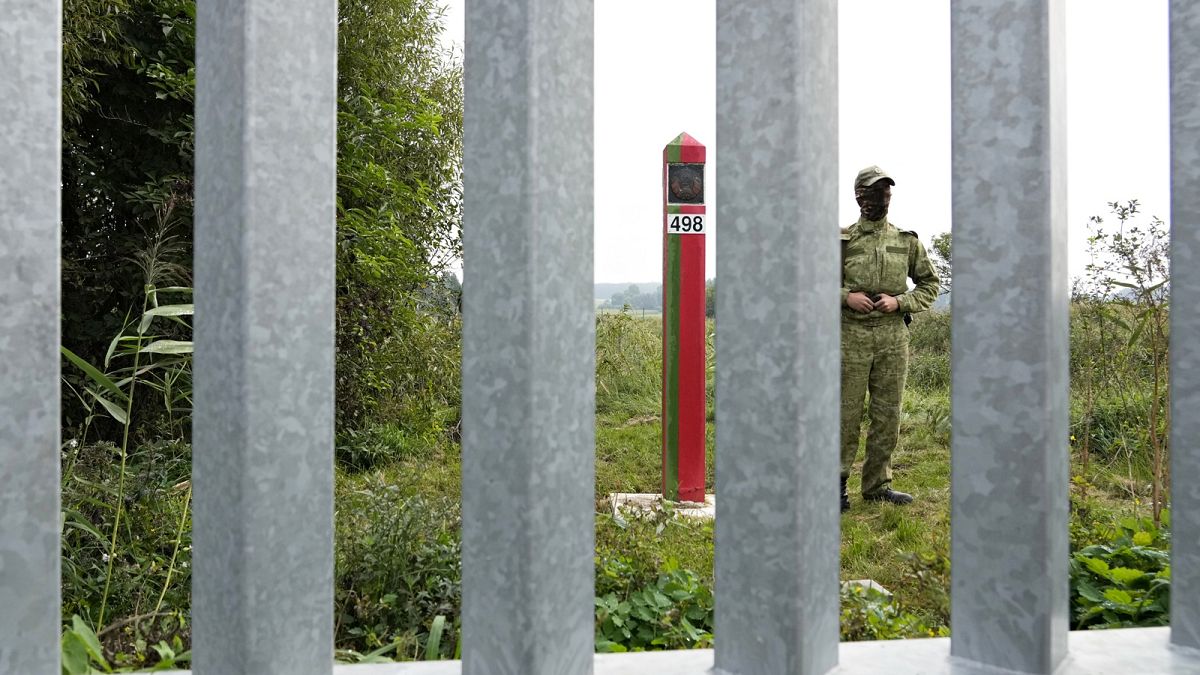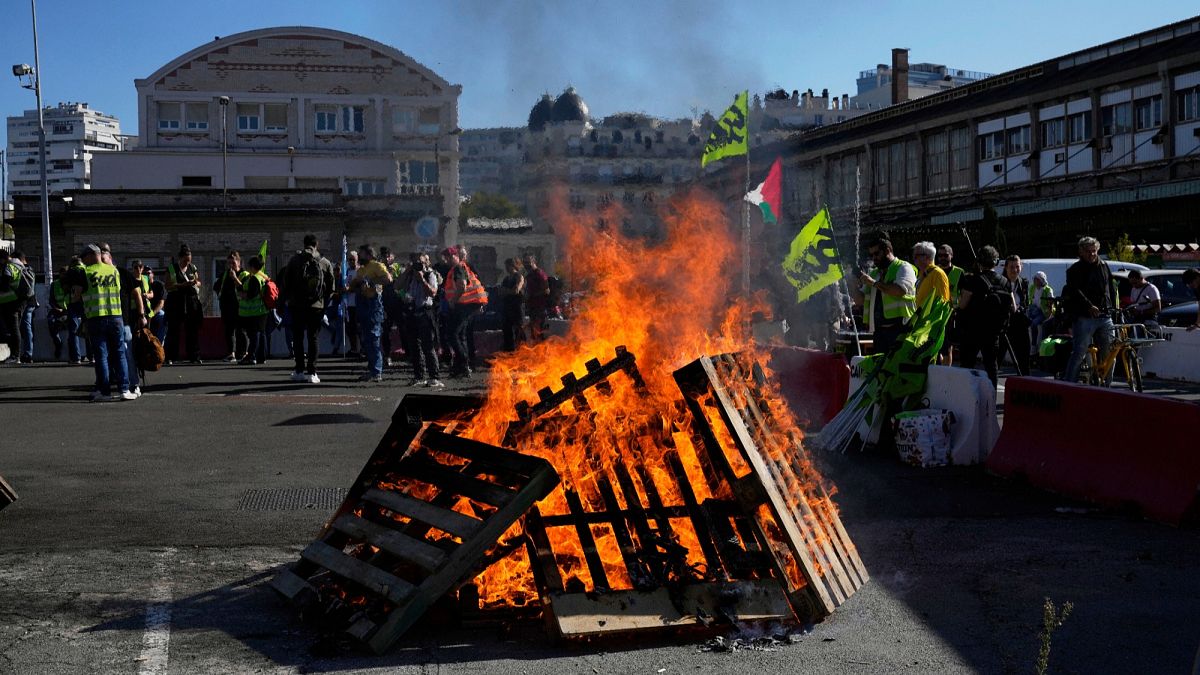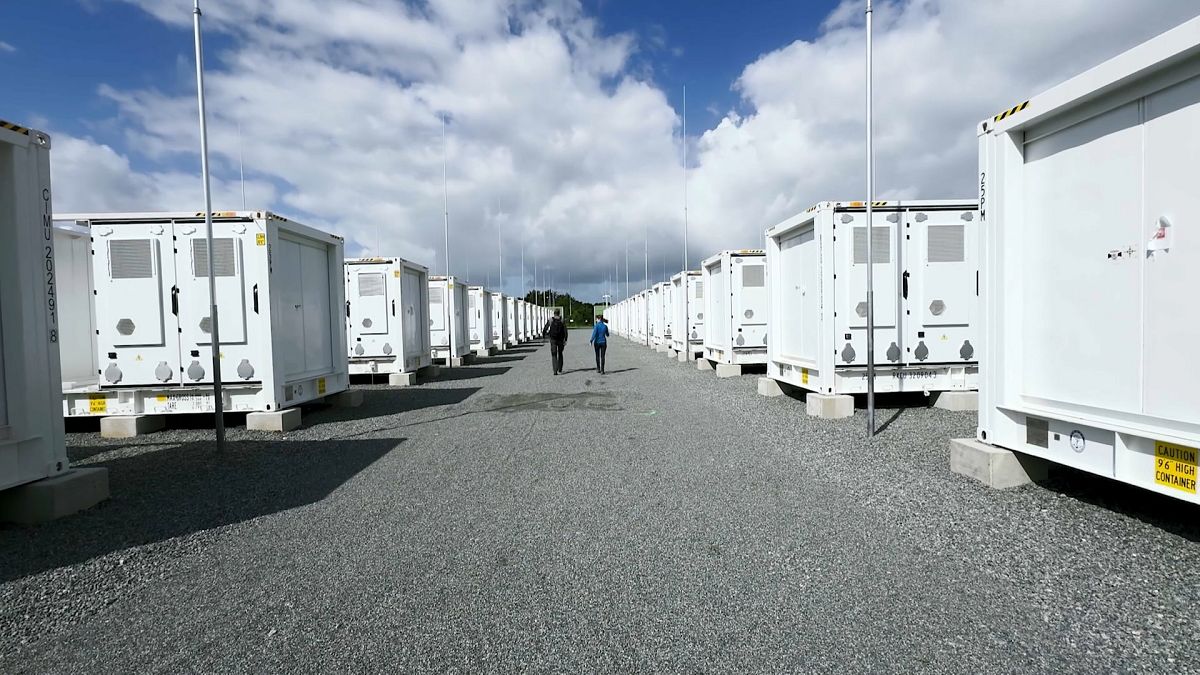Published on
•Updated
ADVERTISEMENT
The European Commission is monitoring the possible economic impact caused by the closure of all crossing points between Poland and Belarus, which has effectively shut down a traditional trade route between the bloc and China.
“We are certainly looking at it closely, but it’s too early to go into further detail,” Olof Gill, the Commission’s deputy chief spokesperson, said on Thursday.
The Polish government decreed the complete closure this week in response to the large-scale military exercises conducted by the Belarusian and Russian forces, known as Zapad-2025, near the border with Poland and Lithuania.
The joint exercises followed an unprecedented incursion of 19 Russian drones into Polish airspace, putting NATO allies on high alert.
Poland has severely restricted road traffic with Belarus since Minsk launched a campaign of instrumentalised migration in the summer of 2021, an event that prompted Warsaw to install high-tech steel fences, deploy the army and create a no-go buffer zone.
The new decision goes further because it also affects railway traffic, which had until now remained largely unaffected by the security tensions.
The measure “is in effect until further notice and is dictated by concerns for the safety of Polish citizens”, the Polish interior ministry said in a statement, noting the interruption will continue after the now-concluded military drills.
The ministry acknowledged the logistical “challenge” for carriers and suggested using the crossing point between Belarus and Lithuania as an alternative route.
“Losses will be assessed once we know how long the border will be closed,” it said.
The railway closure reportedly affects an annual €25 billion in goods between the EU and China. The figure represents a tiny fraction of the €732 billion in goods exchanged between the two sides in 2024, mostly by sea.
On Thursday, the European Commission, which has exclusive competence on trade matters, trod carefully to avoid the impression of criticising Poland.
Since the start of tensions with Belarus, Brussels has expressed continued solidarity with Warsaw, providing additional EU funds and relaxing asylum rules.
“This is a security issue,” Gill said, echoing the Polish position.
“There is a trade impact when a border is shut down along which trade routes flow. We’re in touch with the Polish authorities to look at all aspects of this issue,” he went on.
“Any trade-related challenges that arise from such a security situation are happening because of Russia’s brutal, illegal and unjustified war.”
It was not immediately clear if the Commission was also in active discussions with the Chinese government to assess the economic impact.
On Monday, Chinese Foreign Minister Wang Yi met with his Polish counterpart, Radosław Sikorski, in Warsaw. However, the read-out released by Beijing did not mention the closure of the crossing point and instead spoke, in broad terms, about “the sustainable development of bilateral trade” betwen Poland and China.













